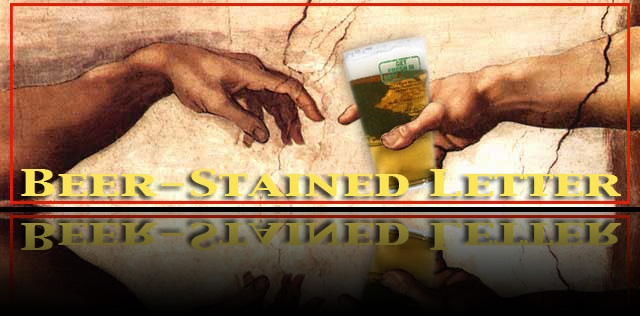Samuel Smith goes to Washington
 We’re coloring outside the lines with that headline, using a British ale to personify America’s microbrewers. But thanks to Frank Capra and Jimmy Stewart, it’s a turn of phrase that’s too good not to use.
We’re coloring outside the lines with that headline, using a British ale to personify America’s microbrewers. But thanks to Frank Capra and Jimmy Stewart, it’s a turn of phrase that’s too good not to use.
We’re referring to the news that U.S. craft beer now has a seat, or a voice at least, at that banquet of issue-oriented discourse known as Congress. (Yeah, we know, our lofty prose is giving Congress the benefit of the doubt, a huge one at that. But now’s not a time to be cynical.)
The new deal
Two weeks ago (May 15th), 34 members of the House of Representatives, from both sides of the political aisle, caucused on the subject of the craft brewing industry, gathering on Capitol Hill for a confabulation that went something like: “You like beer?” “Yeah, I like beer …” “Me, too …” “What kind?” “The tastier, the better …”
OK, we’re taking license again. But the like-minded reps of the lower chamber – the people’s chamber – did resolve that a prime objective of the House Small Brewers Caucus would be awareness of and education about the niche industry that has returned flavor and creativity to the art of brewing beer in America.
A statement put out last week by the Brewers Association, the craft beer industry’s trade group, describes the mission as providing an interactive opportunity for learning the ins and outs of small business (in this case, running a microbrewery is the small business), the brewing process, and the quality and value of brewing activities.
So what does all this mean? That craft brewers have won recognition for their economic and cultural contributions.
The big picture
The obvious benefits from the industry are some jobs created here, some federal and state taxes or fees paid there. But seriously, the contribution is much bigger, and less matter-of-fact.
For one thing, the craft beer industry is a cultural bridge, and its brewers ambassadors.
Take, for example, the beer styles served up by those small brewers. It’s their global imagination that sends you on a journey, figuratively and literally. Many an American beer enthusiast who has sipped a Belgian ale here has traveled there in search of the genuine article that inspired his local craft brewer. Ditto for the chap in the heartland who signed up with CAMRA and found himself filling a pint to the line as a volunteer at the Great British Beer Festival.
Consider, too, the symbiotic relationship between craft breweries and their communities: Locally grown or produced foods served at restaurants that feature locally made beers. It’s a similar kind of relationship that pairs the Garden State’s annual craft beer festival with the USS New Jersey, retired from decades of decorated battleship service now pulling duty as a floating naval museum. (This year's festival – for a third year – is being held on the New Jersey's decks.)
Politics and beer
It’s worth pointing out that the craft beer industry’s new buddy in Congress is a caucus, not a subcommittee or committee, both of which are much higher on the ladder that is congressional business. But from a practical standpoint, having an organized body to turn to is something to crow about, not to mention a bulwark to keep you from getting stomped on in a competition-crazy world.
Says Charlie Papazian, of the Brewers Association (in the organization’s statement): “There is a very real danger that the voice of the small members of the brewing community may not be heard over that of its larger brethren, so a group of legislators bound by a common interest in the history, tradition and excitement that are hallmarks of today’s small brewers, should help ensure our issues get fair consideration.”
For the smallest of the small, the ones whose involvement with the federal government may be limited to just getting a license and label approval, the caucus may not mean much, says Rick Reed of Cricket Hill Brewing Company. It’s a bigger deal for the brewers who conduct business across state lines. Rick cautions it’s state government that can be the heavier hand.
And in a not-too-business-friendly climate like New Jersey, that’s a whole other story.
FOOTNOTE: There are no representatives from the New Jersey House delegation on the small brewers caucus. (We're not surprised by that.) However, the Garden State's neighbors north and west – New York and Pennsylvania – each have three members.
If you're the lobbying kind, maybe a letter or email to Rep. Jim Saxton will spark an interest; Flying Fish, the state's largest craft brewer, is located in Cherry Hill, and that's a marquee town in Saxton's sprawling South Jersey district. You can probably skip putting pressure on North Jersey reps, since there's a Budweiser facility in Newark, and hence the distinct possibility your suggestions would fall on deaf ears.













